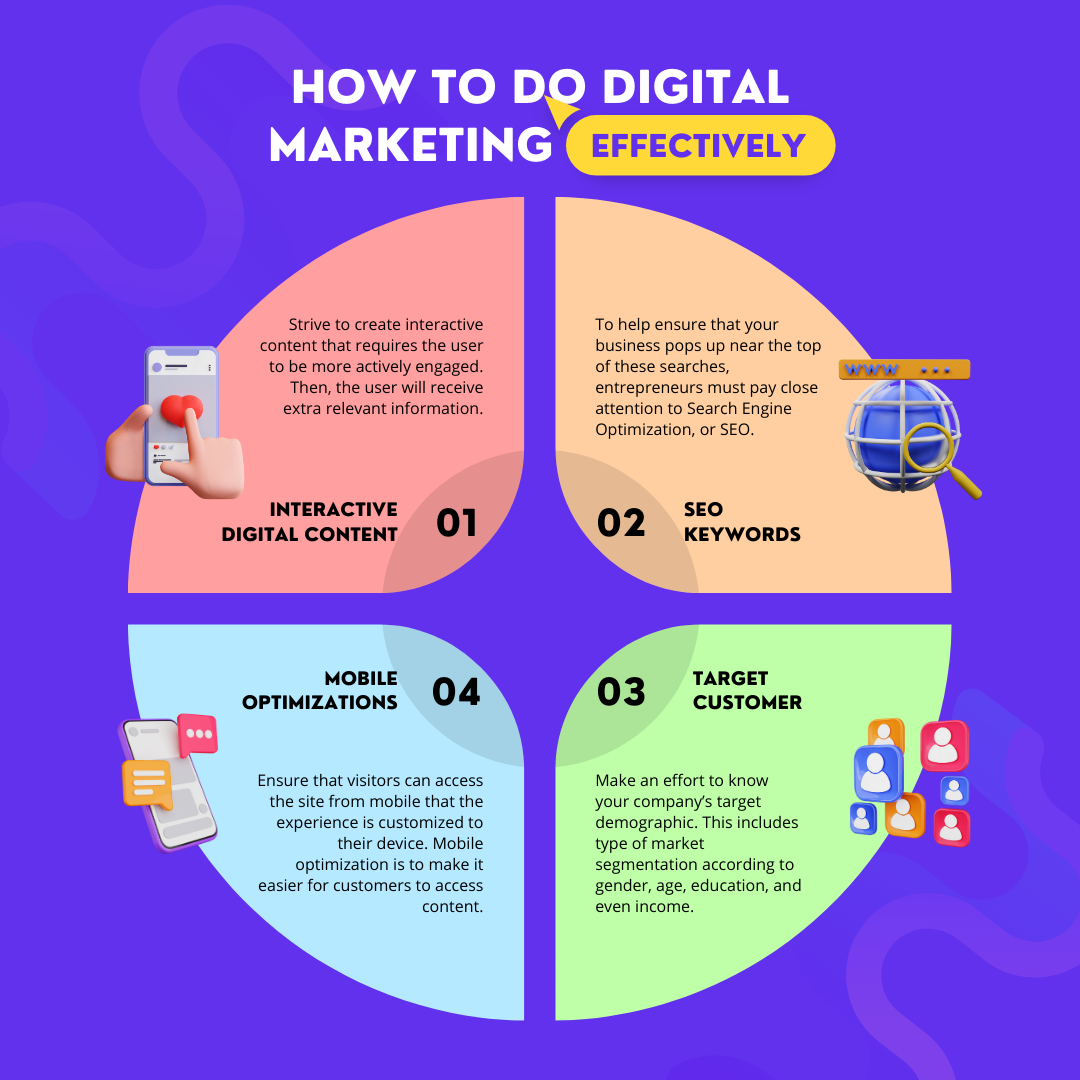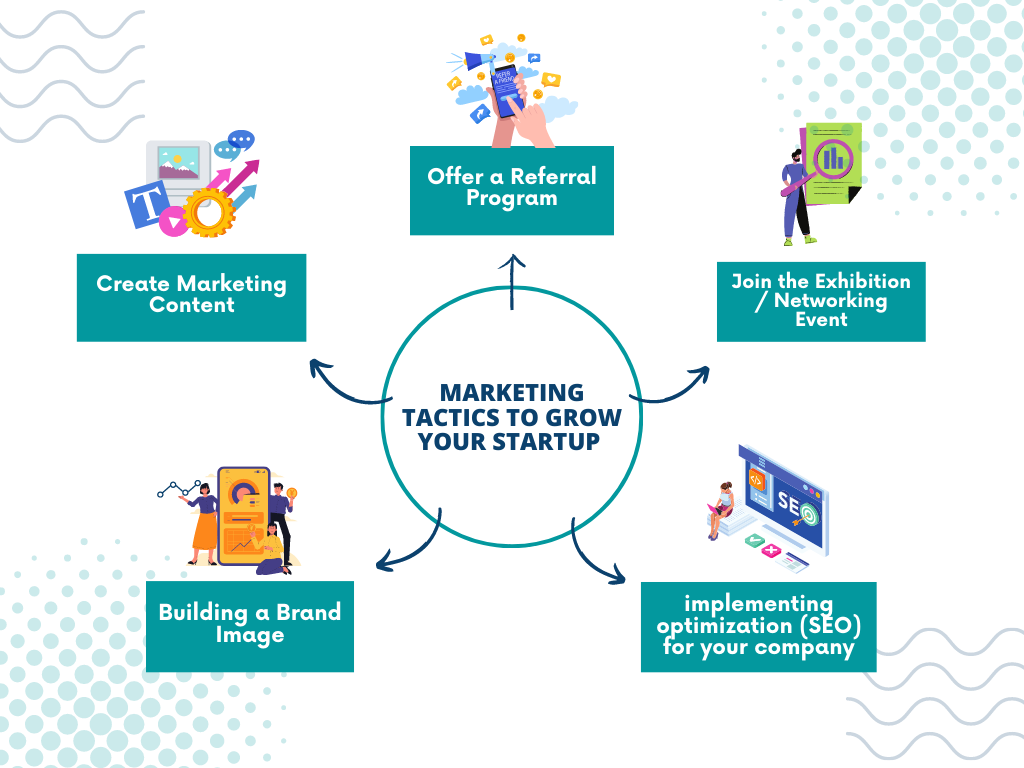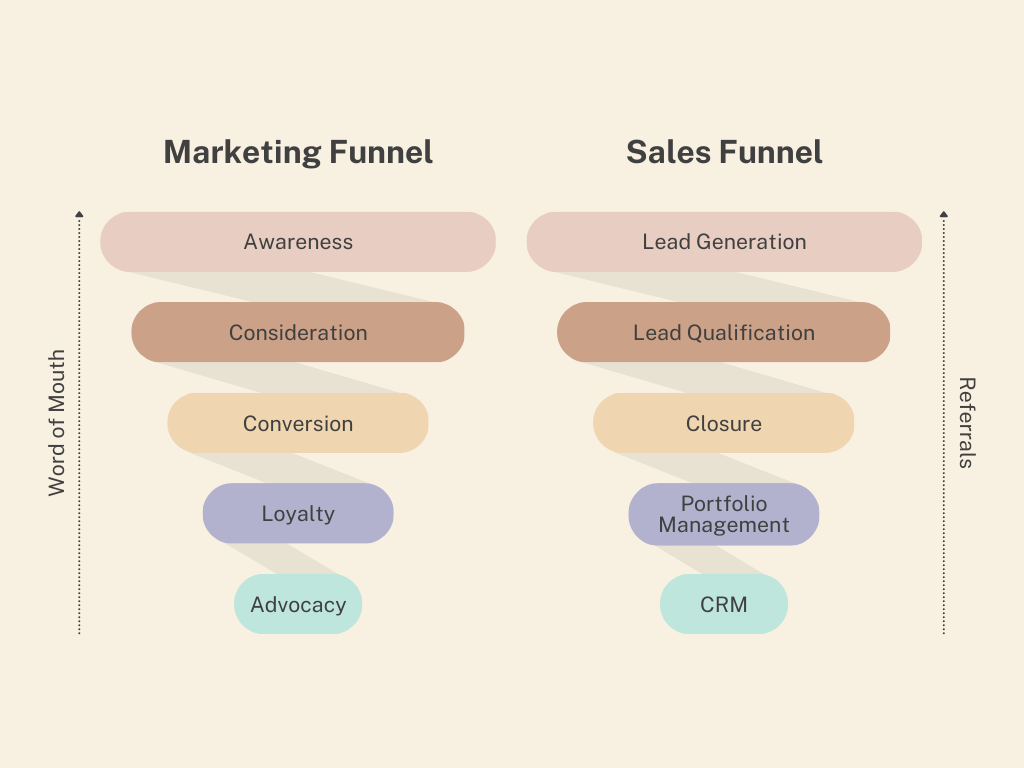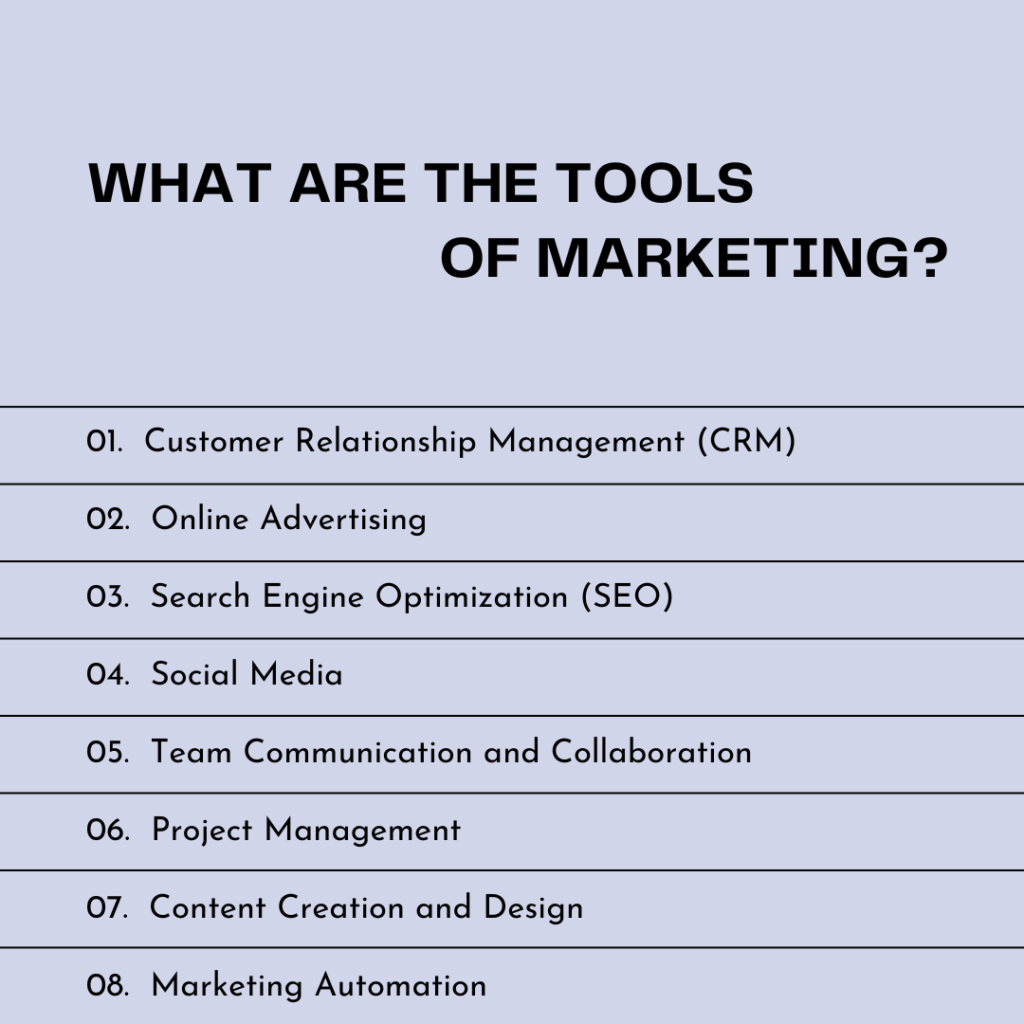Are you a startup looking to make a splash in the digital marketing world? You’re not alone! Many startups struggle to effectively market themselves online, but the truth is that it doesn’t have to be difficult. With the right strategies and tools, you can easily create an effective digital marketing plan for your startup. In this ultimate guide, we’ll provide you with step-by-step instructions on how to do digital marketing for startups, from getting started to optimizing for success. We’ll cover everything from content creation and website optimization to social media and paid advertising.
Who Is Your Target Audience?
When it comes to digital marketing, one of the most important steps is identifying and understanding your target audience. Without knowing who you’re trying to reach, it’s impossible to craft an effective digital marketing strategy.
Your target audience is the group of people who are most likely to be interested in your product or service. It’s important to understand their needs and pain points so that you can create content that speaks to them and resonates.
To identify your target audience, consider factors such as their age, gender, location, interests, and even income level. You can also research your competitors’ target audiences to get a better idea of who you should be targeting.
Once you have a clear idea of who your target audience is, you can create more targeted campaigns that will help you reach more qualified leads. Keep in mind that your target audience may change over time, so it’s important to constantly review and adjust your strategy accordingly.
What Are Your Goals?
When it comes to digital marketing, it’s important to have goals in mind. Your goals should be tailored to your business, and your budget and timeline. They can range from creating brand awareness to increase leads or sales, depending on the type of business you are in.
To figure out what your goals should be, first consider what you want your digital marketing efforts to achieve. For example, if you’re a startup, your goal might be to create brand awareness and generate leads. In this case, you would likely focus on content marketing, SEO, and social media.
On the other hand, if you’re a more established company with an existing customer base, you may be looking for ways to increase sales or increase engagement with existing customers. In this case, you might focus on email campaigns, paid advertising, or retargeting campaigns.
No matter what your goals are, it’s important to set measurable metrics that you can track and analyze over time. This will allow you to measure your success and adjust your strategies as needed.

What’s Your Budget?
When it comes to digital marketing, budget is an important factor to consider. Without a budget, your efforts will be wasted and you won’t see any return on your investment. To get the most out of your digital marketing efforts, it’s important to determine how much money you’re willing to invest and then allocate that money across the different channels you’ll use.
One of the most important things to remember when it comes to budgeting for digital marketing is that you don’t need to break the bank to be successful. There are plenty of free or low-cost options available that can still yield great results. Here are some tips for budgeting for digital marketing:
- Set realistic goals and expectations: Before you set your budget, take the time to determine what kind of return you hope to achieve from your digital marketing efforts. This will help you determine how much you should be spending to reach those goals.
- Allocate your budget: Once you know what your goals are and how much you have to spend, it’s important to allocate your budget across the different channels. Consider what platforms your target audience is most likely to engage with and prioritize those platforms first.
- Test and adjust: Don’t be afraid to test different strategies and adjust your budget accordingly. If something isn’t working, don’t be afraid to cut it and try something else.
- Monitor progress: It’s important to monitor your progress and adjust your budget as needed. Make sure that you’re tracking key metrics such as website traffic, conversions, and engagement so that you can see which strategies are working and which ones aren’t.
By following these tips, you can ensure that your digital marketing budget is being used effectively and efficiently. With the right strategy and a little bit of patience, you can maximize your budget and achieve great results.
What Channels Should You Use?
When it comes to digital marketing for startups, there are numerous channels available that you can use to reach your target audience. Depending on your business goals and budget, you can decide which channels would be the best for your marketing campaigns.
Social media channels such as Facebook, Instagram, and Twitter are great ways to spread the word about your startup. You can create engaging content, post updates about new products or services, and share helpful resources to engage with your followers. Social media also allows you to build relationships with customers, prospects, and influencers.
Search engine optimization (SEO) is another important channel for startups. By optimizing your website, you can help your startup rank higher in search engine results pages and get more organic traffic to your website. You can also use SEO tools such as keyword research and link building to improve your rankings.

Content marketing is also a great channel for startups. By creating informative blog posts, videos, e-books, and other types of content, you can reach a wider audience and establish yourself as an authority in your industry. Content marketing also helps you build relationships with potential customers.
Email marketing is also an effective channel for startups. With email marketing, you can send personalized messages to prospects and customers and keep them updated about your latest products and services. You can also use email to offer promotions and discounts.
Finally, you should also consider using paid advertising channels such as Google Ads, Facebook Ads, and LinkedIn Ads to drive more traffic to your website. Paid ads allow you to target specific audiences based on their interests, demographics, and location, and they are a great way to increase brand awareness and drive sales.
What Types of Content Should You Create?
When it comes to digital marketing for startups, content is king. Content can be used to promote your product or services, build relationships with customers, and even drive sales. But what type of content should you create?
First and foremost, you should focus on content that provides value to your audience. This could include helpful blog posts, educational videos, or informative infographics. You should also consider using a variety of content formats, such as audio podcasts, webinars, or slideshows. Not only will this keep your audience engaged, but it will also help you reach a wider range of people.
When creating content, you should also think about how it ties into your overall marketing strategy. For example, if you’re trying to increase awareness about a new product, you may want to create content that highlights its features and benefits. If you’re looking to build relationships with customers, consider creating content that addresses their needs or provides useful advice.
Finally, you should also consider creating content specifically tailored for different platforms. For example, content for social media sites such as Twitter and Facebook should be shorter and more visual, while longer-form content such as blog posts and white papers may be better suited for other platforms like LinkedIn.
By taking the time to create content that is valuable to your audience, tailored to different platforms, and aligned with your overall marketing goals, you can ensure your digital marketing efforts are successful.
What Tools Can Help You?
When it comes to digital marketing for startups, there are a lot of tools available to help you maximize your efforts and get the most out of your campaigns. Here are some of the most popular and effective tools for digital marketing for startups:
- SEO Tools: SEO tools such as Ahrefs, SEMRush, and Moz Pro can help you analyze your website’s performance and optimize your content for search engines.
- Content Marketing Platforms: Content marketing platforms like WordPress, HubSpot, and Adobe Experience Manager can help you create and manage great content for your campaigns.
- Social Media Management Platforms: Platforms such as Hootsuite, Sprout Social, and Buffer can help you manage and optimize your social media accounts to reach your target audience.
- Email Marketing Platforms: Platforms such as Mailchimp, Constant Contact, and AWeber can help you create, manage, and analyze your email campaigns.
- Paid Advertising Platforms: Platforms such as Google Ads, Facebook Ads, Twitter Ads, LinkedIn Ads, and Bing Ads can help you reach a wide range of audiences through paid advertising campaigns.
- Analytics Tools: Tools such as Google Analytics, Kissmetrics, and Crazy Egg can help you track your website’s performance and analyze user behavior to improve your campaigns.

These tools can help you achieve success in your digital marketing efforts, so be sure to consider using them for your startup.
What Are Some Best Practices?
When it comes to doing digital marketing for startups, there are a few best practices you should follow to ensure you get the most out of your efforts.
- First, you should start by defining your target audience and understanding their needs. This will help you create content and campaigns that are tailored specifically to your potential customers.
- Second, determine how much budget you have to spend on digital marketing. Your budget will dictate which channels and tools you can use.
- Third, make sure you’re using a mix of paid and organic marketing tactics. Paid advertising can help you reach a wider audience more quickly, while organic tactics like SEO and social media can help you build brand awareness and loyalty over time.
- Fourth, create quality content that resonates with your target audience. Content is key for any digital marketing strategy, so make sure you’re creating content that is interesting, relevant, and engaging.
- Fifth, stay up to date with the latest trends in digital marketing. Keep track of what’s working for other businesses in your industry and adjust your strategy accordingly.
Finally, track your progress and measure results regularly. Measurement and analytics are essential for optimizing your campaigns and ensuring you’re getting the most out of your efforts.
Following these best practices will help ensure that your digital marketing efforts are successful. By setting clear goals, understanding your target audience, and creating quality content, you can maximize your ROI and reach more people with your message.
What Are Some Common Mistakes?
When it comes to digital marketing for startups, some common mistakes can quickly derail any campaign. Here are a few to watch out for:
- Not understanding your target audience: Knowing who you’re trying to reach is essential for any digital marketing campaign. Doing your research beforehand will help you create effective content and messages that will resonate with your intended audience.
- Not setting measurable goals: When it comes to digital marketing, you need to have realistic and measurable goals in place to know if you’re succeeding or failing. It’s also important to remember that you need to track the results of your campaigns to make informed decisions about future strategies.
- Ignoring analytics and data: Data is essential when it comes to digital marketing. By analyzing data and optimizing your campaigns, you can maximize your ROI and get the most out of your efforts.
- Focusing on quantity over quality: Creating high-quality content is key when it comes to digital marketing. Aim to provide valuable information and engage with your audience, rather than focusing on the quantity of content you’re producing.
- Not investing in SEO: SEO is essential for helping your content appear higher in search engine rankings and driving more organic traffic to your website. Investing time and resources into SEO will ensure that you’re creating content that is optimized for search engines and reaching the right people.
What Should You Outsource?
When it comes to digital marketing, many startups find themselves in a difficult position. On one hand, they want to save money and handle their digital marketing tasks. On the other, they may not have the resources or expertise to do it right. This is where outsourcing can be a great help.
Outsourcing your digital marketing tasks can be a great way to make sure you’re getting the most bang for your buck. By hiring someone with experience in the field, you can be sure that your campaigns are run by experts who know what works and what doesn’t.
When it comes to outsourcing your digital marketing tasks, there are a few things to consider. First, make sure you find someone who specializes in the type of digital marketing you’re looking for. For example, if you need help with SEO, find someone who has experience with SEO specifically. Next, decide how much you’re willing to pay for the services. Outsourcing can be expensive, so make sure you know what your budget is and what services you can get within that budget.
Finally, make sure you’re comfortable with the person or team you’re hiring. If possible, get references from previous clients and talk to them about their experiences. It’s also important to make sure that you feel comfortable communicating with the outsourced team and that they understand your goals and objectives.
Outsourcing your digital marketing tasks can be a great way to save time and money while ensuring your campaigns are handled by experts in the field. By following these tips, you can find the right person or team to help you get the most out of your digital marketing efforts.
What Are Some Advanced Strategies?
Advanced digital marketing strategies can help startups grow quickly and effectively.
- Targeted Advertising – Utilize targeted advertising to reach your audience with a high degree of precision. You can target based on demographics, interests, and even geographical locations. This type of advertising is especially effective for local businesses.
- Personalization – Develop personalized content that speaks to your target audience. Leverage their interests, needs, and wants to increase engagement and conversions.
- Automation – Automate processes to save time and money while still driving the desired results. Automation can help you with scheduling, customer segmentation, and even personalization.
- Multivariate Testing – Test various elements of your campaigns to ensure that you’re targeting the right audience and using the most effective content. Multivariate testing also helps you optimize your campaigns for maximum ROI.
- A/B Testing – A/B testing allows you to compare two different versions of the same element (e.g. headlines) to determine which one performs best. This can help you optimize your campaigns for higher click-through rates, conversions, and overall success.
- Content Optimization – Optimize your content for search engine optimization (SEO). Use keywords, meta descriptions, and other techniques to make sure that your content is optimized for Google and other search engines.
By utilizing these advanced digital marketing strategies, startups can position themselves for success in the digital age. Implementing these strategies will help startups gain a competitive advantage and reach their desired audience.
Next Steps To Conquer Your Digital Marketing Plan for Your Startup
Once you’ve laid out the foundation for your digital marketing plan, it’s time to start implementing it. Here are a few tips for getting started:
- Make sure you have a clear focus. You should have a clear understanding of who you’re targeting, what channels you’ll use, and what types of content you’ll create.
- Set up tracking systems. Tracking your progress is essential for any digital marketing plan. Use tools like Google Analytics and UTM tracking codes to measure your success.
- Monitor and adjust your campaigns. Keep an eye on how your campaigns are performing and make adjustments if needed.
- Invest in paid advertising. Paid advertising can be an effective way to reach more people and generate more leads.
- Test, test, test! Test different elements of your campaigns to see what works best and optimize accordingly.
- Stay up-to-date on digital trends. Make sure you’re aware of the latest industry developments so you can stay ahead of the competition.
- Don’t forget about organic content. Organic content like blog posts and social media posts are important for keeping your customers engaged and building relationships with potential customers.
- Focus on conversion optimization. Make sure that your website is optimized to convert visitors into customers by having intuitive navigation, clear call-to-actions, and other features that help make the customer journey smoother.
- Analyze and adjust your strategy regularly. Keep an eye on your data and make adjustments to your plan as needed based on what you find.
By following these steps, you can set yourself up for success when it comes to launching your digital marketing plan for your startup. Remember, digital marketing isn’t something that happens overnight—it takes time and dedication to get it right. But by following these tips, you can ensure that your digital marketing plan will be well-executed and help you reach your goals.


